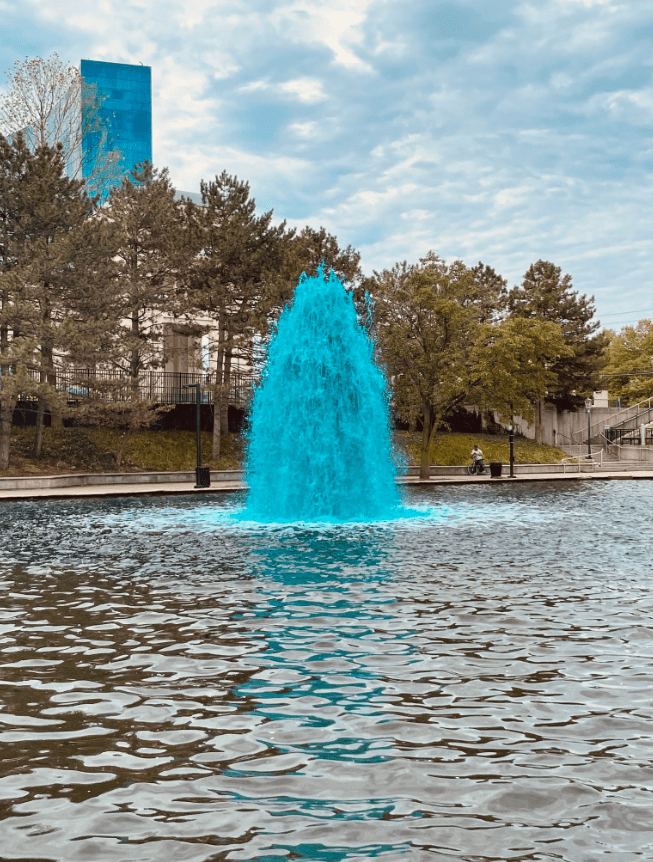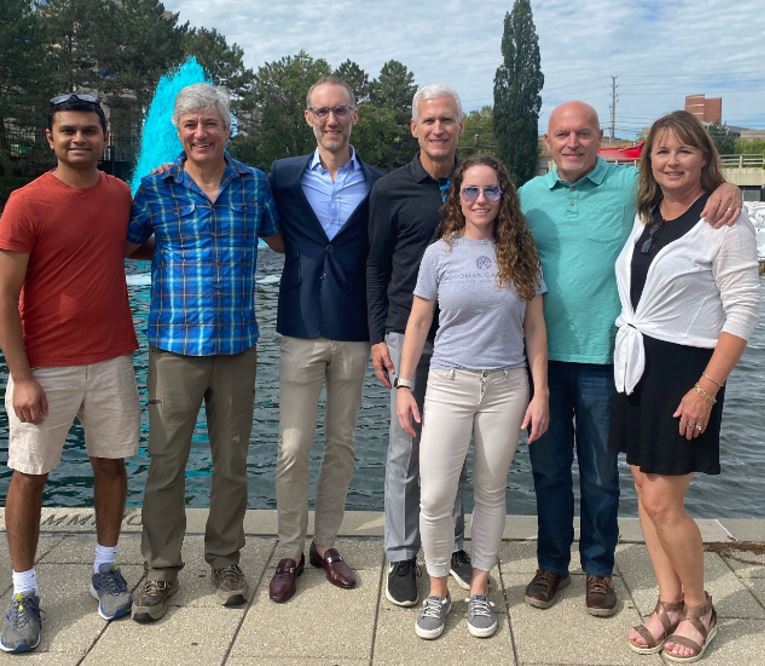
A brain aneurysm is a distortion or outpouching in the wall of a brain artery that can become stretched and thin over time. Because this portion of the arterial wall is under constant pressure from blood flow, a tear may occur resulting in a life-threatening bleed, also known as a ruptured aneurysm..
Being diagnosed with a brain aneurysm is frightening. If the aneurysm has ruptured you need medical care quickly. This is a devastating disease which effects people of all ages, races, socio-economic status, etc. The results of suffering from a ruptured aneurysm can span the continuum from mild to fatal. The specialists at Goodman Campbell Brain and Spine are experts in aneurysm treatment. We see patients throughout Indiana to provide consultation, treatment, follow-up care and more.
Common Signs and Symptoms of a Brain Aneurysm:
- Most unruptured aneurysms cause no signs or symptoms and are more likely to be found by accident during a brain imaging study. When an unruptured aneurysm enlarges enough to put pressure on other areas in the brain, you may notice:
- Localized eye pain
- Drooping eyelid
- Pupil change or disturbance with movement
- Seizures or other tumor-like symptoms in rare cases
- The key symptom of a ruptured aneurysm is an explosive, instantaneous headache, sometimes called a “thunderclap.” Other possible symptoms include:
- Loss of consciousness
- Seizure
- Neck stiffness
- Nausea and vomiting
- Impaired thinking or loss of memory
- Elevated blood pressure
Not all aneurysms rupture. Some aneurysms can be followed over time and monitored, while others require treatment. There are a couple of ways to treat aneurysms- surgically or endovascularly. Interventional neuroradiologist nurse practitioner, Molly Matthews, shares that “Treatment options of an unruptured brain aneurysm include surgical clipping with an open craniotomy or endovascular treatment. Endovascular treatments use coils, stents, or a WEB embolization device to cut off flow to the aneurysm with the goal of completely curing it. Treatment of a ruptured aneurysm includes emergent surgical clipping, coiling, or placement of a WEB embolization device.”
Neurosurgeon Dr. Charles Kulwin explains, “Aneurysm management is one of the more complex areas of neurosurgery, and each case is unique with its own challenges. Patients are best treated by a team that can offer various types of modern treatment options and one that treats aneurysms regularly to ensure the best outcomes. Recovery from treatment for an unruptured aneurysm can be short, depending on the treatment type selected. A ruptured aneurysm is generally a life-altering event, requiring months of rehabilitation and brain healing. This starts in the neurologic intensive care unit with neurosurgery and critical care teams. Next, patients may transition to a rehabilitation hospital before continuing in the outpatient setting. A tremendous amount of support from family, therapists, and friends is needed to get through what can be a long, difficult road to recovery.”
In honor of National Brain Aneurysm Awareness month, survivors and their families, Goodman Campbell dyed the Indianapolis Downtown Canal a brilliant teal color! The canal dyeing event included a number of patients and physicians of Goodman Campbell (Dr. Daniel Sahlein and Dr. Troy Payner). Interventional neuroradiologist nurse practitioner, Kelly Hoonhout and host of the canal dye event, said “We had a fantastic turnout at our first and hopefully annual canal dye event! It was a way to show support to our patients as well as offer education to those walking along the canal. I felt a sense of pride in hosting the event and it was a great way to connect with patients in a relaxed environment.”

“Aneurysms are rare, but when they rupture can have a huge impact on that individual and all that care for them. It is important to be aware of the symptoms of aneurysm rupture and to obtain treatment quickly if those symptoms occur,” according to neurosurgeon Dr. Kushal Shah.
To learn more about Goodman Campbell’s support groups visit: https://www.goodmancampbell.com/patients/support-groups/.
